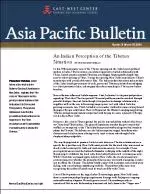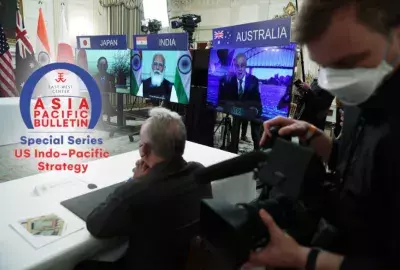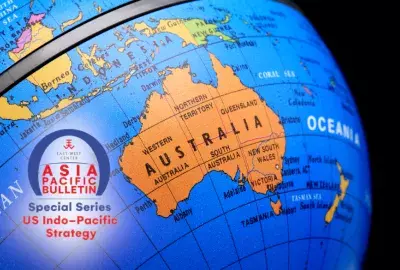Error message

In this 50th anniversary year of the Tibetan uprising and the Dalai Lama's political asylum in India, Tibet remains a crucial sticking point in India's relationship with China. India's position towards Tibet has not changed fundamentally despite last year's violent uprising in Tibet. However, the crisis in Tibet reignited the prickly internal debate within India about its China (and Tibet) policy. Phunchok Stobdan describes Indian perceptions of the Tibetan situation and India's relationship with China. The views expressed in this publication are those of the author and do not necessarily reflect the policy or position of the East-West Center or any organization with which the author is affiliated. |
In this 50th anniversary year of the Tibetan uprising and the Dalai Lama's political asylum in India, Tibet remains a crucial sticking point in India's relationship with China. India's position towards Tibet has not changed fundamentally despite last year's violent uprising in Tibet. However, the crisis in Tibet reignited the prickly internal debate within India about its China (and Tibet) policy. Phunchok Stobdan describes Indian perceptions of the Tibetan situation and India's relationship with China. The views expressed in this publication are those of the author and do not necessarily reflect the policy or position of the East-West Center or any organization with which the author is affiliated. |







